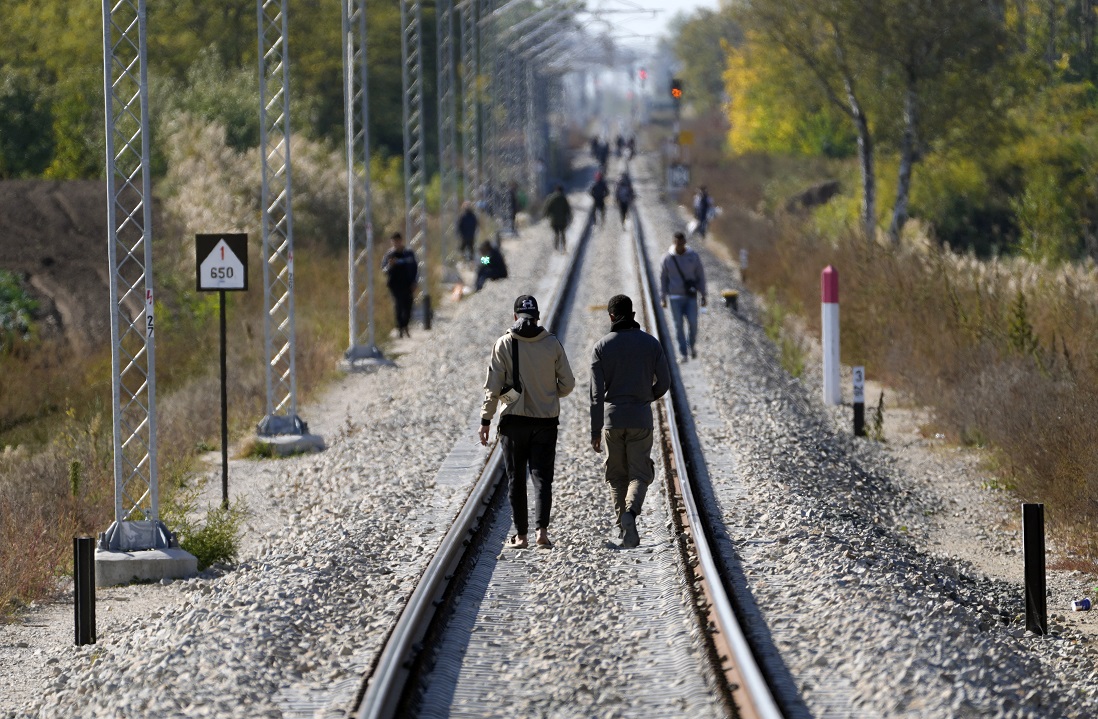More than 5,500 illegal border-crossing attempts have been recorded at Hungary’s external border so far this year, with authorities already arresting 50 people smugglers in less than three weeks, according to Hungarian Prime Minister Viktor Orbán’s chief adviser on internal security.
Speaking on Kossuth Radio’s Thursday morning program, György Bakondi revealed the Hungarian border force is primarily focused on the Balkan migratory route, much of which stems from Turkey through Bulgaria and Serbia up to Hungary.
Bakondi told listeners that despite efforts by the Turkish authorities to crack down on illegal immigration and eradicate the operations of people smugglers in the country, the number of migrants flowing into Europe continues to grow, placing extraordinary pressure on nations such as Hungary that protect the European Union’s external border.
“There is usually a decrease from the end of November to the end of February, as sleeping under the open sky in winter and moving in the field causes difficulties, but this year, due to the mild weather, this is not the case,” the prime minister’s security adviser said.
“The last decrease was related to border-crossing restrictions due to the Covid-19 epidemic, when many countries on the Balkan route tried to keep foreigners away by deploying their armies. But since then an intense and continuous increase can be seen,” he added.
Bakondi also revealed border guards had come across migrants of nationalities different than those they have come to expect, including from India, Pakistan, Nepal, and Bangladesh. He also confirmed the vast majority of new arrivals are young men.

Violence at the Hungarian-Serbian border has become commonplace, Bakondi added, revealing that organized crime groups continue to attempt to gain control over some areas of the border on the Serbian side and are frequently involved in armed clashes with authorities.
“The fact that people smugglers have weapons indicates that they also cooperate closely with drug and arms trafficking groups.
“All signs point to the fact that the pressure will not decrease, therefore the safety of the Hungarian people must be ensured in terms of manpower, technical means, and legal conditions,” he added.
Bakondi’s account of the border correlates with the latest stats published by EU border agency Frontex, which revealed that the Western Balkan migratory route had overtaken the Mediterranean route from North Africa into Italy last year to become the busiest pathway to Europe.
[pp id=62487]
More than 145,000 illegal migrants were detected using the route last year, a significant increase of 136 percent over 2021.
Frontex data also supported Bakondi’s statement regarding the demographic makeup of migrants, with more than 80 percent of illegal border-crossings being undertaken by men.
Bakondi warned Europe could soon see a repeat of the chaos that ensued at the border back in 2015-2016, claiming that approximately 3.6 million Syrians and 400,000 people of other nationalities are registered in Turkey and are waiting for an opportunity to come to Europe.
With organized crime networks in Bulgaria, Serbia, and Turkey now working more closely together, Bakondi called on the European Union to start thinking differently about how it supports nations protecting the external border.






